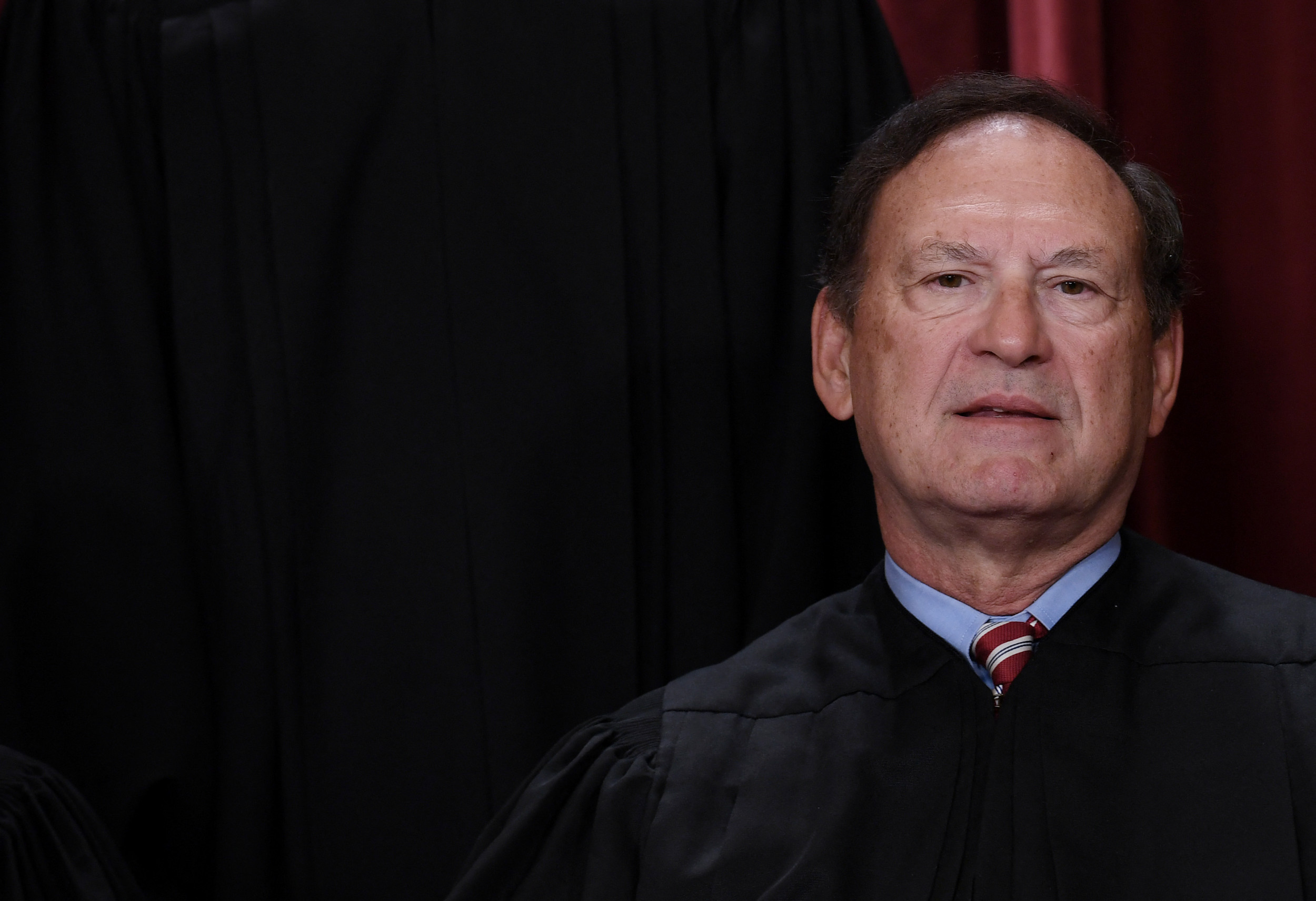A majority of American adults feel safe in their local area and believe that law enforcement policing their streets are doing a good job, according to exclusive polling conducted on behalf of Newsweek.
However, the survey of 1,500 U.S. adults by Redfield & Wilton Strategies, showed the nation remained somewhat divided about whether the crime situation in their locale and the police response to it was improving. Meanwhile, 46 percent thought crime levels were going down in cities, despite urban areas typically experiencing higher crime rates.
The results of the survey appear to go against a narrative—fueled by widely reported cases of violent crime, mass shootings and allegations of police brutality—that America's problems with law and order are worsening. In the first 100 days of this year, there have been a record number of mass shootings, according to a joint-mass killing database maintained by the Associated Press, USA Today and Northeastern University, as well as high-profile cases involving accusations of inappropriate police conduct.
The figures come in stark contrast to sentiments before the 2022 Midterms, when in October a Gallup poll found 56 percent of American adults said they perceived their local area as experiencing more crime—a record high since the pollster began tracking the question in 1972. At the same time, the Pew Research Center found that violent crime was a key issue, especially for Republican voters.

According to Newsweek's poll, conducted on April 24, nearly 70 percent of respondents had a positive view of the police in their local area, with 35 percent viewing them very favorably and 34 percent favorably. Just 4 percent said they had a very unfavorable view of their local cops.
While the results were not broken down by the ethnic background of respondents, they somewhat cut against condemnatory claims that police forces in America have problems with systemic racism that are actualizing into prejudiced practices, claims of which often prompt protests from African American groups.
The number of people who had a positive view of their local police force was higher among those who had voted for Joe Biden in the 2020 election—61 percent—compared with Donald Trump voters, on 55 percent. Republicans have traditionally claimed that theirs is the party of law and order, and in the run-up to the last election Trump was characterized as describing Biden as "anti-police."
Some 72 percent of U.S. voters said they felt safe encountering a police officer on the street at night, while 68 percent felt comfortable with being pulled over by the police while driving. This is despite recent cases such as that of Tyre Nichols, a 29-year-old Black man who was beaten by police officers after being stopped in Memphis, Tennessee and later died in hospital.
An overwhelming majority of those surveyed felt their local area was a safe place, with 31 percent strongly agreeing and 42 percent agreeing with the sentiment.
A slim majority also said that the crime and policing situation in their local area was getting better, with 26 percent saying it was significantly improving and a further 25 percent saying it was better. Only 14 percent said it was worse, with just 5 percent saying the situation was significantly worse.
FBI crime data up to 2021 shows a steady decline in property crimes such as burglary, going from just over a million offenses nationwide in 2019 to around 616,000 in 2021.
That said, according to analysis by the University of Pennsylvania's Department of Criminology, rates of violent crime and homicides in the U.S. have been rising since 2015—however, this came after a long-term decline from the early 1990s, and levels have yet to climb as high as they were then.
This suggests that though Americans may think their own area is safe, others might not be. A January report by MoneyGeek showed a vast disparity in the cost of crime between "safest" and "most dangerous cities," with crime costing $156 per capita in Napier, Illinois compared with $8,457 in St. Louis, Missouri.
Some 53 percent of respondents said they felt safe walking alone at night—which rose to 71 percent when asked about walking with a friend or partner at night—however, in both cases, the proportion who expressed this sentiment was higher among men than women.
Women often speak out about fears of being approached while on their own on the street, and a 2021 survey by End Violence Against Women found many had experienced sexual harassment in public and felt unsafe in outdoor spaces. Rebecca Hitchen, EVAW's head of policy, said at the time that the data confirmed "that violence against women and girls remains a constant threat."
Among those surveyed for Newsweek, 64 percent were comfortable being alone in a taxi or ride share, but this dropped slightly to 62 percent among women, and 64 percent felt safe being by themselves at home with a tradesman such as an electrician or plumber—though just 59 percent among women.
Perhaps the largest gender disparity was on whether people felt safe going on a blind date. The survey revealed that 55 percent of men said they felt comfortable with the idea, compared with just 41 percent of women.
Uncommon Knowledge
Newsweek is committed to challenging conventional wisdom and finding connections in the search for common ground.
Newsweek is committed to challenging conventional wisdom and finding connections in the search for common ground.
About the writer
Aleks Phillips is a Newsweek U.S. News Reporter based in London. His focus is on U.S. politics and the environment. ... Read more





